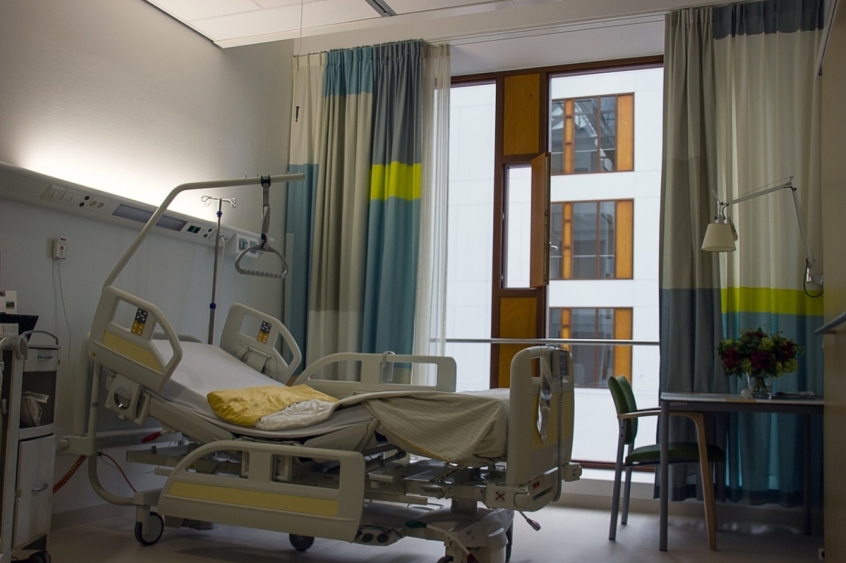A survey by right to die campaign group My Death, My Decision made for a brief story in the Telegraph today. It claims that 93 per cent of Brits are in favour of assisted dying 'in at least some situations'. The devil is in the quote marks, of course; look at the actual numbers, and while the headline is not exactly inaccurate, they don't actually provide the ringing endorsement for its agenda that My Death, My Decision might wish.
Opponents of assisted dying have a problem, in terms of PR. It's relatively easy to find someone who is ill, sad and in pain, who thinks they have had enough and is articulate enough to say so, and make a story out of it. Of course we sympathise – how could we not? Some of those stories are heart-wrenching.

Inevitably, those perceived as wanting to stop them doing what they want to do are cast as the villains – The Church among them. It's much harder to embody the counter-argument. Where's the drama in someone saying, 'Actually, I think I'll just let nature take its course'?
So in the nature of things, public opinion is acted on more strongly by one side than the other.
But as well as feeling deeply, we also need to be thinking deeply – and so far, parliament has thought deeply enough about this to resist the (fairly) popular course.
It's not really fair, however, to caricature the church as monolithically opposed to assisted dying on principle. There are some, certainly, who believe it's just wrong, and that it's up to God when we die. That's not, however, a view that's often heard; while it might be a choice Christians feel called to make, it's not something many would wish to see forced on others. And for most of us Christians, I suspect, it's not in any case an argument that has much force. Many of us, like many in society at large, would like to be in control of our own deaths. We don't like the thought of prolonged pain or mental incapacity. We want to spare our friends and relatives the trouble, grief and expense. And after all, we know where we're going, so why should we worry?
What is it, then, that makes Christians so suspicious of the campaign for assisted dying? There are, I think, reasons that are so deeply rooted in the living of our faith that they can be quite hard to articulate. Here goes with three of them.
1. We're suspicious of individualism. 'My Death, My Decision'? Well, yes: but it isn't all about me, is it? We're social beings, tied to one another in intricate webs of intercourse and understanding. We have friends and families, who are also profoundly affected by what we do. And if we might like to see the law changed to benefit us, we are not sure that it would also benefit other people. What are we doing to doctors when we ask them to help kill us? What sort of society are we helping to create? While we might personally gain relief from pain and indignity, what are other people losing?
2. We understand human nature. At least, if we read our Bibles we do. Proponents of assisted dying sometimes seem to live in a coolly rational world of a kind no one really ever did inhabit. In this world, everyone has everyone's best intentions at heart, and no one's motives are mixed. In the real world, it's very different. The aged father in the nursing home is burning through his children's inheritance. What's the point in keeping him alive? If he loves his children, he'll feel it too; better, surely, to end it? And if they love him, they won't want to see him suffer – but how much of that is genuine filial feeling, and how much is a desperate personal desire to be free, and not to feel so broken after every visit? And that's a 'normal', affectionate family – how does the dynamic change with hatred or indifference? Are we, as a society, comfortable with helping someone to die in that state of ungrace?
3. We don't believe people are disposable. We're right, I think, to fear a changed attitude to end-of-life care, with a moral pressure on sick people to do the decent thing and die quickly. After all, shouldn't our scarce resources be applied to caring for the living? But isn't that the point? Everyone's alive until they're dead. And at the very least, surely we should be resourcing communities – including hospitals and hospices – to such an extent that choosing to die early ought to be a vanishingly rare option.
I'm not convinced of the case for assisted dying, no matter how it's finessed. And that's not because of any theoretical objection to an early exit, but because as a Bible-reading Christian I think we need all the protection we can against the consequences of our own desire for autonomy.
Is it likely to happen anyway? Well, yes, I'm afraid so; choice is the great idol of our time, and its worshippers are irresistible in their fanatic zeal. And then Christians will have to develop a new moral awareness, both on our own behalf and that of the weak and vulnerable. We shall have to make even more sure that life is worth living, right up to its end.
Follow Mark Woods on Twitter: @RevMarkWoods













